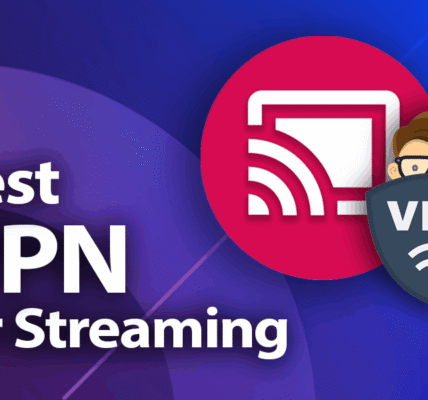Why Accounting Software Matters for Startups

Let’s be real if you’re a startup founder, chances are you didn’t start your company because you love crunching numbers. But ignoring the books? That’s a fast track to financial disaster. Good accounting software is like your business’s GPS, it helps you navigate cash flow, plan for growth, and avoid tax-season panic attacks.
Still think you can wing it with a spreadsheet and blind optimism? Picture this: it’s 1 a.m., your biggest investor wants last quarter’s financials before tomorrow’s pitch, and your Excel file just crashed… again. You’re frantically digging through receipts, guessing your burn rate, and praying the IRS doesn’t come knocking. Sound familiar?
That’s not hustle; that’s chaos.
And the worst part? You didn’t even know your startup was bleeding cash until it was too late. Maybe you overspent on tools. Maybe that “small” marketing campaign drained your runway. The point is, numbers don’t lie but they do disappear when you’re not tracking them right.
This is the kind of stress that breaks founders and businesses.
But here’s the good news: with the right accounting tool, all that panic becomes a thing of the past. You get clarity. Control. Confidence. And best of all? You finally start making money decisions like a CEO, not a gambler.
Key Features to Look For in Accounting Software
You want tools that grow with you, not ones that slow you down. Here’s what to watch for:
- Scalability
You might be a team of two today, but what about next year? Choose software that scales with your business.
- Integration with Other Tools
Your accounting platform should play nice with your CRM, payroll app, and ecommerce tools. Think: Stripe, PayPal, Shopify.
- User-Friendly Interface
You’re not a CPA. You need software that doesn’t require one to use it.
- Evaluation Criteria Used for This List
When we say “top 5,” we mean it. We looked at:
- Pricing
Value for money matters. We favored tools that offer startup-friendly pricing tiers.
- Customer Support
Startups move fast. You need help when you need it — not three days later.
- User Feedback
Real users don’t lie. We looked at reviews from startup founders like you.
- Ease of Use
If the UI makes your head hurt, we tossed it.
Here are Top 5 Accounting Software Every Startup Should Consider in 2025:
#1 QuickBooks Online
QuickBooks Online by Intuit is the 800-pound gorilla in the accounting software space — and for good reason. It’s one of the most trusted, flexible, and feature-rich platforms out there, especially for startups aiming to scale.
Key Features
-
Real-time financial dashboards
-
Seamless bank integration
-
Invoice automation and recurring billing
-
Payroll integration
-
Powerful mobile app
-
Multi-user collaboration
Pros and Cons
Pros:
-
Scalable for growing teams
-
Deep integrations with over 650+ apps
-
Regular updates and cloud backups
-
Intuitive UI and helpful onboarding
Cons:
-
Can get expensive as you scale
-
Some learning curve for non-finance users
-
Customer service can be hit-or-miss
Ideal Use Cases
QuickBooks is perfect for startups planning rapid growth, SaaS businesses, and teams with more complex accounting needs. If you expect to raise funding, investors love seeing clean, QuickBooks-based financials.
Pricing
Starts at $30/month for the Simple Start plan. Most startups find the Essentials or Plus plan (ranging $60–$90/month) more suitable.
#2 Xero
Xero is a fan favorite among tech-savvy founders and global teams. It’s known for its beautiful interface, robust feature set, and strong international support.
Key Features
-
Real-time collaboration
-
Bank feed automation
-
Built-in inventory and asset tracking
-
Integration with over 1,000 apps
-
Unlimited users at no extra cost
Pros and Cons
Pros:
-
Very clean, modern UI
-
Strong multi-currency and tax compliance tools
-
Free unlimited users
-
Cloud-first from day one
Cons:
-
Reporting isn’t as customizable as some competitors
-
U.S. payroll support is limited
-
Smaller partner network in the U.S. compared to QuickBooks
Ideal Use Cases
Startups with remote teams, international transactions, or those that need multi-currency support will love Xero. Also ideal for those who hate clunky, outdated interfaces.
Pricing
Starts at $15/month for the Early plan, but the Growing ($42/month) or Established plan ($78/month) are better fits for scaling businesses.
#3 FreshBooks
FreshBooks is tailored for freelancers and service-based startups that prioritize invoicing, time tracking, and ease of use.
Key Features
-
Client-based project management
-
Time tracking and invoicing
-
Expense categorization
-
Mobile app with mileage tracking
-
Double-entry accounting
Pros and Cons
Pros:
-
Excellent for invoicing and time billing
-
Easy-to-use interface
-
Great for freelancers and agencies
-
Responsive customer support
Cons:
-
Not ideal for inventory-heavy businesses
-
Limited third-party integrations compared to others
-
Charges per client/user as you scale
Ideal Use Cases
Perfect for solo founders, consultants, digital agencies, and freelancers who need beautiful invoices and time tracking.
Pricing
Lite plan starts at $19/month, but most businesses will benefit from the Plus ($33/month) or Premium ($60/month) plan.
#4 Zoho Books
Zoho Books is the unsung hero of small business accounting software. It’s part of the larger Zoho ecosystem, making it a natural fit for startups using Zoho CRM or other tools.
Key Features
-
Workflow automation
-
GST/VAT support for multiple countries
-
Time tracking and billing
-
Client portal and payment reminders
-
Integrated with Zoho suite
Pros and Cons
Pros:
-
Affordable, even for bootstrapped startups
-
Tight integration with Zoho tools
-
Very customizable workflows
-
Free plan for small businesses
Cons:
-
Limited integrations outside the Zoho ecosystem
-
UI is good but less intuitive than FreshBooks or Xero
Ideal Use Cases
Startups in emerging markets (like India or Southeast Asia), especially those using the Zoho stack, will find Zoho Books incredibly useful.
Pricing
Free for businesses with revenue under $50K/year. Paid plans start at just $15/month.
#5 Wave Accounting
If your budget is tight but you still need pro-level tools, Wave is the ultimate freemium pick. It’s great for micro-startups and solopreneurs who want the basics without the bloat.
Key Features
-
Free invoicing and accounting
-
Receipt scanning via mobile
-
Basic reporting tools
-
Payroll available (paid add-on)
-
Integrates with Stripe
Pros and Cons
Pros:
-
Totally free for core features
-
Beautiful UI, even on mobile
-
Great for freelancers and solo founders
Cons:
-
Limited advanced features
-
Reporting and forecasting tools are basic
-
No project tracking or inventory
Ideal Use Cases
Ideal for bootstrapped startups, freelancers, and solo founders just getting started. It’s a great stepping stone before upgrading to a more robust tool.
Pricing
Core features are 100% free. Paid features like payroll start at $20/month.
Bonus Picks: Other Noteworthy Mentions
Sage 50cloud
A hybrid model of desktop software and cloud accessibility. Great for traditional businesses needing advanced inventory features.
FreeAgent
Made for freelancers and contractors. Excellent UK tax features.
NetSuite
An ERP-level tool from Oracle is an overkill for most startups but amazing for those heading toward IPO.
Common Mistakes Founders Make with Accounting Tools
-
Overcomplicating with enterprise tools: You’re not Salesforce, not yet. Start small.
-
Ignoring compliance features: Choose tools with built-in support for audits, tax filing, and financial standards.
Cloud-Based vs. On-Premise Accounting Tools
Spoiler alert: Cloud wins. Cloud-based tools offer real-time access, mobile convenience, and effortless updates which is perfect for nimble teams.
How to Transition from Excel to Accounting Software
Data Migration Tips
Export your Excel sheets into CSV format and follow your software’s import guide. Most tools offer concierge migration support or partner accountants.
Change Management
Train your team gradually, and assign roles for invoicing, expenses, and reporting to get everyone onboard.
Security and Compliance in Financial Tools
Your data is gold. Look for tools that comply with:
-
GDPR (European startups)
-
SOC 2 and ISO 27001 (global standards)
-
Role-based permissions to avoid “too many cooks” in your books
Integration with Other Business Tools
Choose accounting tools that integrate with:
-
CRM (like HubSpot, Zoho, Pipedrive)
-
Payroll (Gusto, Paychex)
-
Ecommerce (Shopify, WooCommerce)
The smoother your stack, the smoother your operations.
Conclusion: Picking the Right Tool for Your Startup
Choosing the right accounting software is a bit like choosing a co-founder it has to fit your culture, needs, and vision. Whether you’re bootstrapped and need something free like Wave, or scaling fast with QuickBooks or Xero, the right tool will save you time, reduce errors, and help your business grow.
Start with your current needs, but always plan for where you want to go.
Read Also 7 Best Antivirus Software Options for Businesses
FAQs
1. What’s the best free accounting software?
Wave Accounting offers a completely free suite for small businesses and freelancers.
2. Can I use QuickBooks without an accountant?
Yes, but it’s wise to consult an accountant for setup and periodic check-ins.
3. What’s the best tool for invoicing?
FreshBooks shines for invoicing and time tracking perfect for service-based businesses.
4. How do I migrate from Excel?
Export your data to CSV and import into platforms like QuickBooks or Xero. Many offer support during migration.
5. Is accounting software safe to use?
Absolutely. Choose platforms with encryption, two-factor authentication, and certifications like SOC 2 and GDPR compliance.




